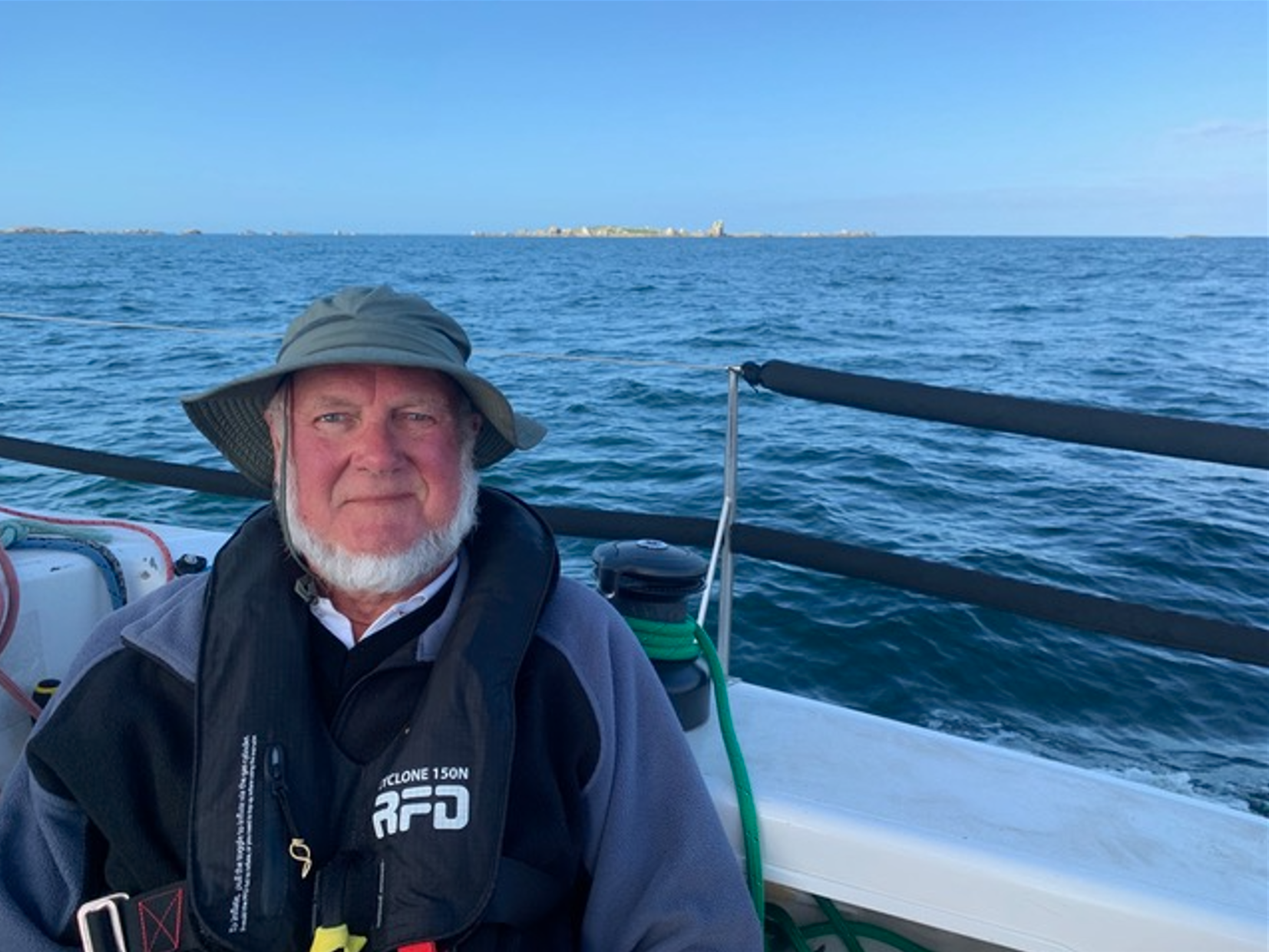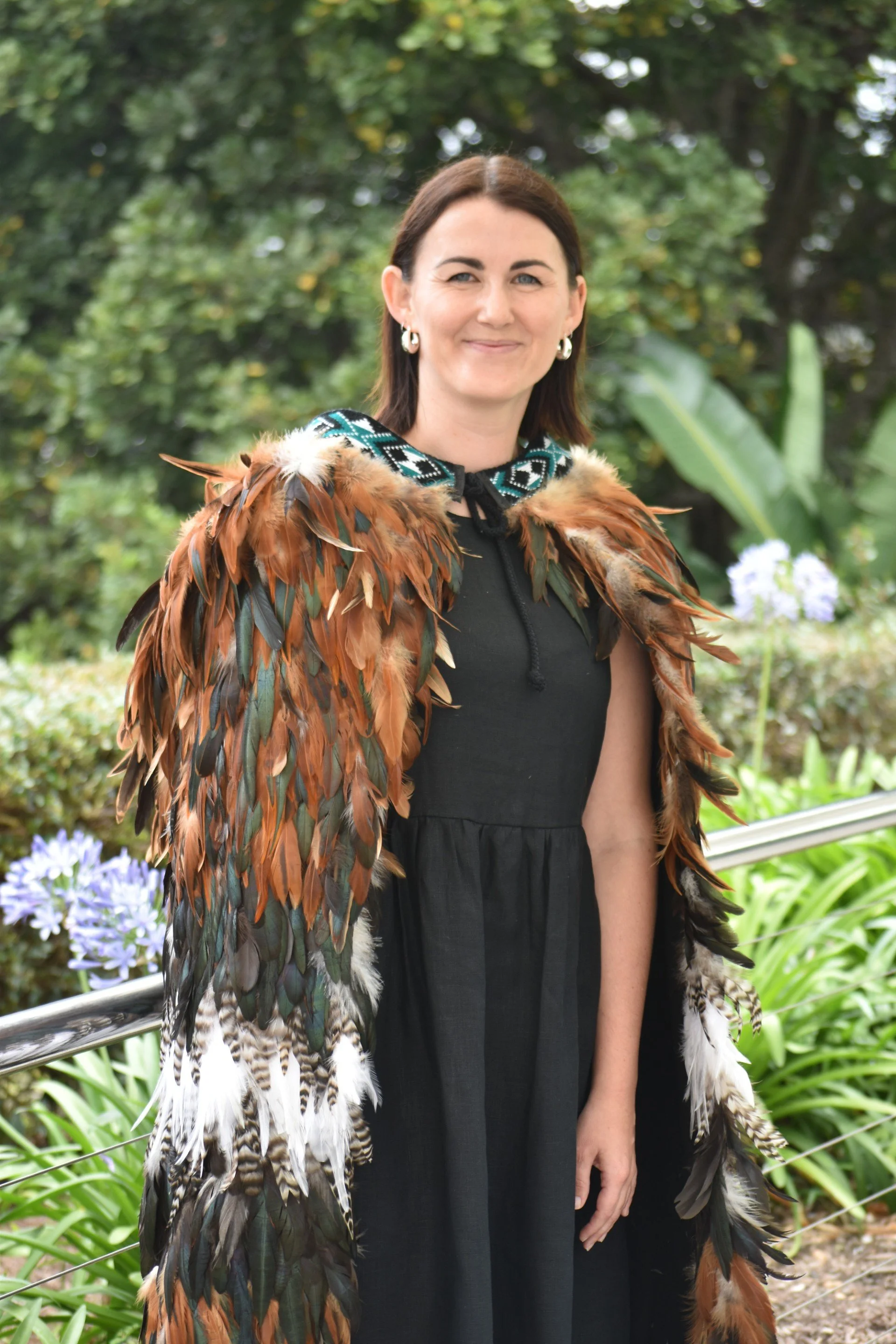After being an ED director and practicing emergency medicine for five decades, FACEM Dr Bryan Walpole one day came to the realisation that while he was ready for life beyond the ED, he still had more to give as a doctor. He decided to have an adventure, and he never looked back.
ACEM korowai - its symbolism and meaning
The ACEM korowai (Māori ceremonial cloak) is a prestigious garment which holds profound cultural meaning and significance. First worn by Past President Dr John Bonning at his inauguration in 2019, FACEM Dr Stephanie Bedford wore the korowai at the College’s graduation ceremony in late 2025.
Flying high - lifting off into emergency medicine
FACEM Dr Krupa Mehta, Staff Specialist at the Campbelltown Hospital and a Retrievalist for the Westpac Rescue Helicopter and the Royal Flying Doctor Service, shares some insights with YourED about her pathway to becoming a recent Fellow.
Celebrating 25 years of emergency medicine as a specialty in PNG
Emergency medicine as a speciality is turning 25 years old in Papua New Guinea. EM trainee Dr Ulysses Oli, a final-year candidate of the Masters of Medicine in Emergency Medicine (MMed EM) program at the University of Papua New Guinea, currently working at the Port Moresby General Hospital ED, reflects on what this means to him.
Making a world of difference
After a career spent working in resource-limited emergency medicine settings around the globe, FACEM Associate Professor Megan Cox received the International Federation for Emergency Medicine (IFEM) Humanitarian Award 2025 at the International Conference on Emergency Medicine (ICEM) this May in Montreal.
Surfing doctors making waves
The Surfing Doctors describe themselves as ‘a group of like-minded doctors with an interest in surfing, medicine, continuing medical education and service.’ Their mission is to provide medical care in remote surf locations where healthcare access is limited and difficult to provide.
Diagnostic safety and excellence
Associate Professor Carmel Crock travelled to Geneva, Switzerland to attend the World Health Organization (WHO) global consultation for World Patient Safety Day 2024. Read her reflections on the event one year later, including how emergency departments can optimise diagnostic safety and excellence.
Trauma medicine: Skills and opportunities
Emergency physicians with trauma skills have always been highly valued in the emergency department, and ACEM is looking to further build and enhance opportunities for ED physicians to develop their trauma managements skills and expertise. Programs and openings in hospitals across Aotearoa New Zealand and Australia are creating pathways for growing numbers of FACEMs to specialise, study, research and teach trauma medicine both within and outside of the ED.
'Being here has made me fall in love again with emergency medicine'
“He aha ta mea nui o te ao? What is the most important thing in this world?
He tangata, he tangata, he tangata. It is people, it is people, it is people.”
This was the enduring message for around 100 delegates who made the journey from around Aotearoa, Australia, Canada, and the United States to attend the Aotearoa New Zealand Emergency Medicine Conference 2025.
GEC Scholarships creating change
Dr Mangu Kendino, 2019 GEC Scholar now serving as emergency physician and director for emergency medicine training at Port Moresby General Hospital, has words of wisdom to share with new scholars about the benefits of the program.
Thriving as an IMG in emergency medicine: What I’ve learned
Dr Ajith Thampi has made the journey from International Medical Graduate to FACEM. With a deep commitment to supporting international and local medical graduates, Ajith draws meaning from the many stories shared by the doctors he mentors.
Regional ED powerhouse: The transformation of Albury Wodonga Health
Three years ago Albury Wodonga Health had just two ACEM trainees in its emergency department. Today it boasts eight trainees, with the regional ED becoming an option of choice for emergency physicians looking for career development opportunities.
Compassion as our core in the ED
This isn’t a piece about being nice. It’s about choice, about what it means to care when it is hard to care. Not when things are calm, but when someone’s screaming, the phone won’t stop, and another trolley rolls in. Because this is where it matters most.
Mount Barker ED great workplace initiatives
ACEM Wellness Week ran from 8-14 June 2025. Read about what Mt Barker ED did to mark ACEM Wellness Week last year and how it still has an impact today.
Reach out and connect: the power of mentoring
ACEM’s mentoring program, Mentor Connect, matches participants with an EM colleague and provides support in their role as mentor or mentee. It’s a rewarding journey of learning and growth for both participants, and a chance to give back and share wisdom. Hear from a recent FACEM mentor/mentee about how they both benefitted from taking part.
Gone fishing: Life after 40 years in emergency medicine
FACEM Dr David Green is looking forward to ‘towing a boat around Australia’ in retirement after nearly four decades as ED Director at Gold Coast University Hospital.
International Women’s Day 2025
‘You can’t be what you can’t see.’ As we approach International Women’s Day on 8 March 2025, YourED invited some women in emergency medicine (EM) to share some of their passions, pathways and plans for the future.
The smell of smoke in the ED: reflections on bushfire season
As summer heats up, YourED reflects on the impact bushfires can have on the entire community, and the medical professionals working in emergency departments across Australia and Aotearoa New Zealand.
The power of life-saving knowledge
When Dr Olufemi Onikola passed a serious car accident on his way home, the new skills he had just learned at an Emergency Medicine Education and Training (EMET) session helped save the patient’s life.
New grant strengthens research culture in emergency medicine
The launch of the ACEM Foundation Kelly Research Grant is another way to help nurture a research culture in emergency medicine, with early and mid-career researchers encouraged to apply.




















